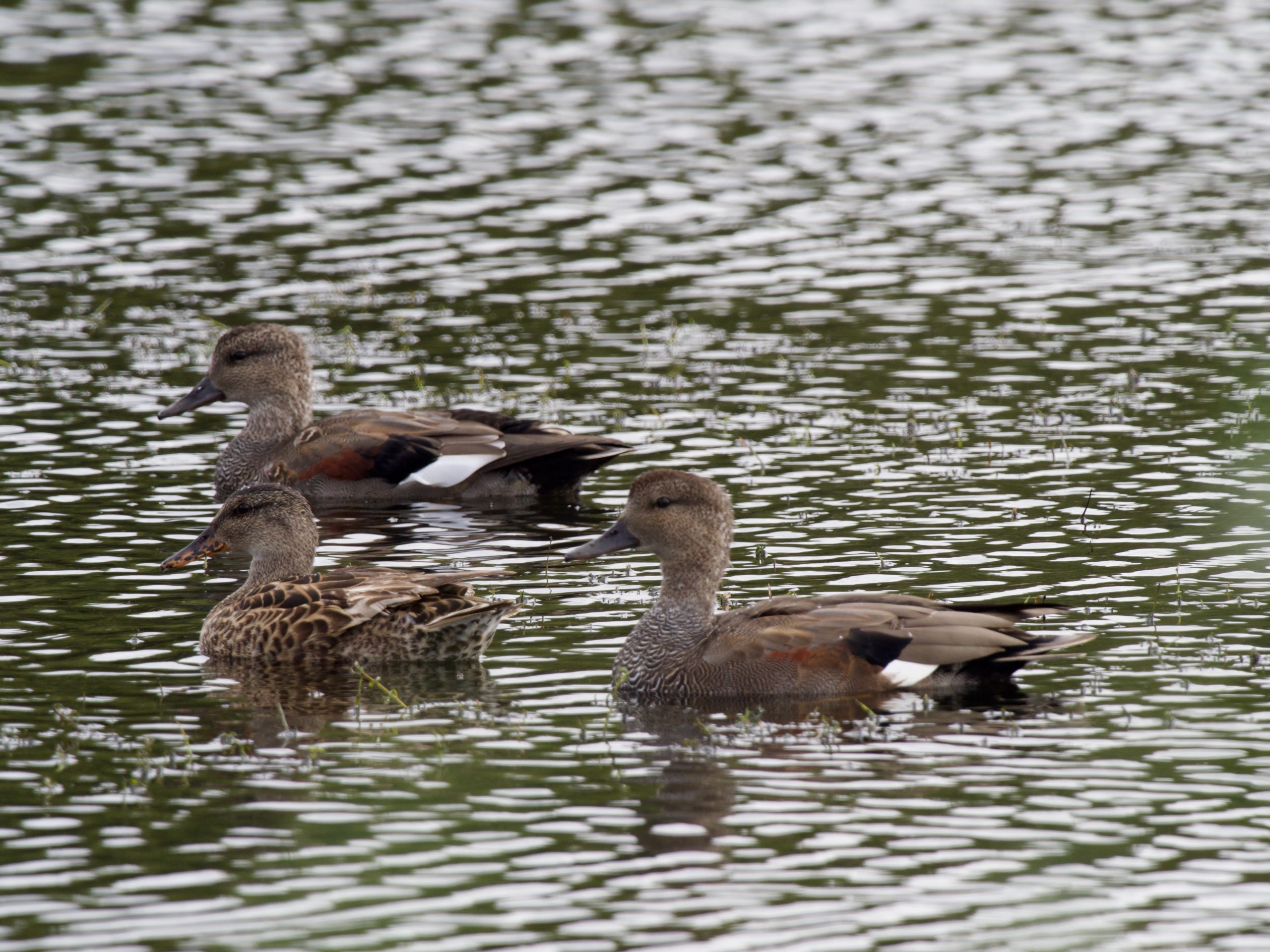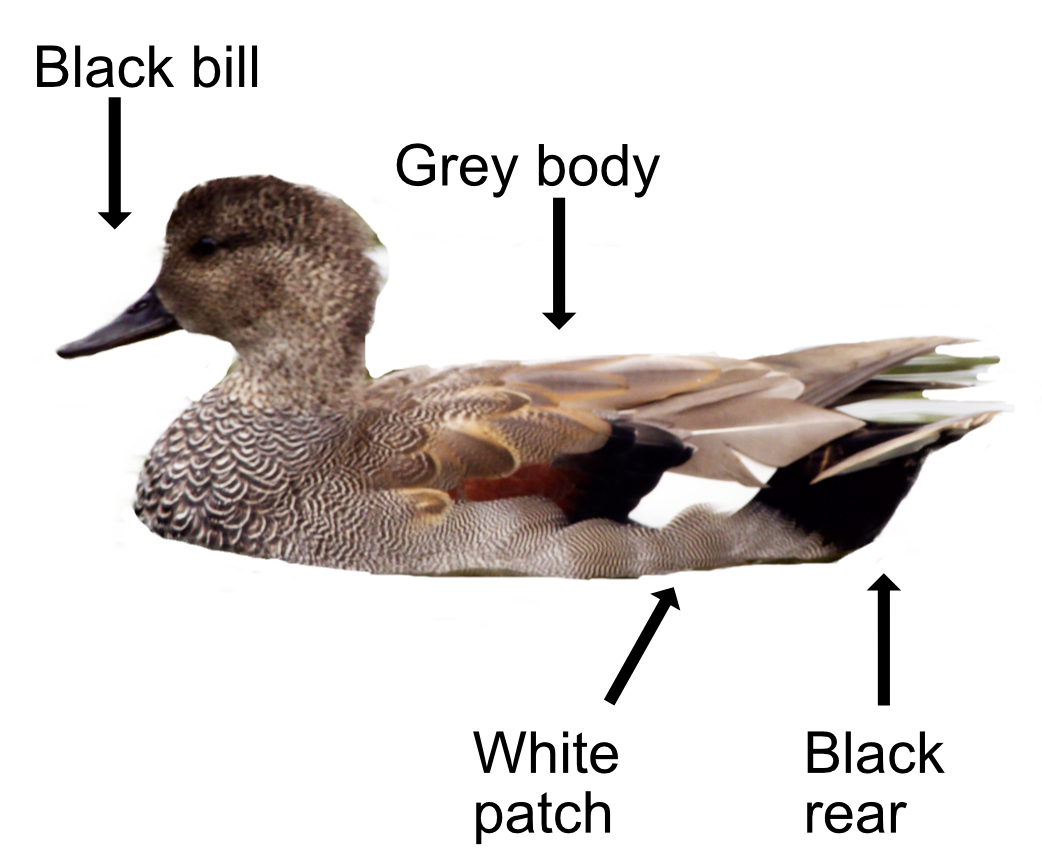
The grey-suited Gadwall is the boring accountant of the duck world. It was introduced in around 1850. Why anyone would want to introduce such a dull duck is mystifying. It is a dabbling duck and can be found on lakes mainly in southern and eastern parts of Britain.
Gadwalls are a little smaller than Mallards. The male Gadwall has a finely marked grey body, an obvious black rear end and a black beak. The female is more mottled with some brown fringing on her feathers and she has an orange beak as though she is wearing lipstick. They both have a square white patch on their inner wing, which is especially visible when flying. They are generally silent. The male only making a deep rasping nasal "angh" croak when flying. The female occasionally makes a gentle quack. Like many other ducks, they are flightless for 4 weeks during their moult.
They are boring vegetarians, eating mainly water plants like pondweed and rushes. They can sometimes be seen following Coots and Mute Swans around to grab some waterweed the Coot or Swan has pulled up from below the water.

Gadwall nest on the ground next to lakes or on small islands. They build their nest in dense vegetation, often close to terns or gulls as these will chase away would be predators. They make the nest in a hollow from grasses and their own feathers. Like the Mallard, the male Gadwall leaves the female all on her own to sit on the eggs while he goes to talk about tax with other males. The 8-12 eggs hatch after 24 days. The youngsters can feed themselves soon after hatching and are looked after by mum. They can fly and become independent after 45 days.
The Gadwall is resident in Britain with 1,200 nesting pairs swelling to 25,000 in winter, as birds arrive from northern Europe and Iceland. The oldest ringed Gadwall lived to be 23 years old as he was very good at budgeting. With the low numbers, the Gadwall is an Amber List species. Their Latin name is 'anas strepera' where 'anas' means 'duck' and 'strepera' means 'noisy', which they aren't. Typical accountants, trying to make themselves sound grander than they are.